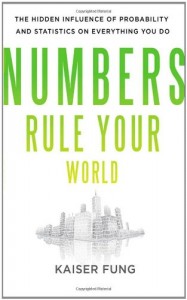 Technologies Enabling the Police State describes the inevitability of pervasive surveillance, how it’s developing, and how we can act now to maintain the maximum degree of freedom. This is Part1 of a series on autonomy in the digital age. Personal and Collective Actions to Maintain Autonomy (Part2) is a how-to post, while Police State Scenarios (Part3) discusses ways that collective permanent loss of autonomy could unfold.
Technologies Enabling the Police State describes the inevitability of pervasive surveillance, how it’s developing, and how we can act now to maintain the maximum degree of freedom. This is Part1 of a series on autonomy in the digital age. Personal and Collective Actions to Maintain Autonomy (Part2) is a how-to post, while Police State Scenarios (Part3) discusses ways that collective permanent loss of autonomy could unfold.
Despite their grim titles, these posts are not intended as doomsday writings, and I don’t intend to say that I think a police state is being developed intentionally. My conclusion is rather that the technologies of mass control are developing rapidly, and the risk is significant that some group will seize control of them in the foreseeable future. I think you’ll find some of their points surprising, perhaps even breakthrough. Please let me know in comments!
I did not want to write this post, and I doubt that you want to read it; however, as I explain here, we’re at a pivotal point of human history. We are rapidly losing our […]

 [UPDATED] Step inside a data scientist’s mind, and learn why probability is the key to profit and how it’s the key to understanding and using big data for better decision making. This fascinating and useful book clearly shows how people misunderstand probability and misuse statistics—and therefore big data—and how the knowledge gap leads to faulty models, thinking and decisions. New winners and losers are emerging in the digital social and big-data age. A new digital divide, people who think like data scientists and use probability to support decision making—and everyone else. The data science group will outperform, and Fung shows how creative, fun and useful data science is.
[UPDATED] Step inside a data scientist’s mind, and learn why probability is the key to profit and how it’s the key to understanding and using big data for better decision making. This fascinating and useful book clearly shows how people misunderstand probability and misuse statistics—and therefore big data—and how the knowledge gap leads to faulty models, thinking and decisions. New winners and losers are emerging in the digital social and big-data age. A new digital divide, people who think like data scientists and use probability to support decision making—and everyone else. The data science group will outperform, and Fung shows how creative, fun and useful data science is.